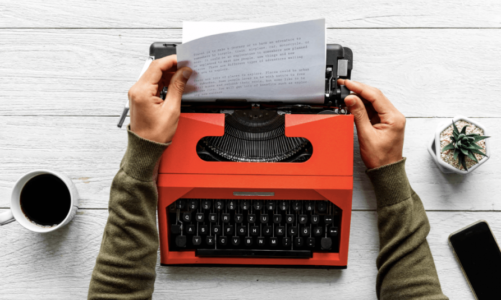Paper books, contrary to the predictions of the pessimists, are not losing ground and are still in demand among readers. We analyzed why electronic literature will never replace regular libraries.
War of the book worlds
The debate about the benefits of paper and e-books is as fierce lately as it is about political issues. On social networks the supporters of devices are called lovers of weighty volumes conservatives and advised to abandon all the benefits of civilization, to move into the wilderness and move to a cart instead of a car. Their opponents are not left in debt – they equate their opponents with mankurts and fear that computers will cause people to give up reading.
According to experts, there is no accurate data on what type of books is better perceived by readers, but experts believe that the choice of media depends on the individual characteristics of man. Some people prefer electronic versions, others prefer to flip through paper pages.
The unambiguous advantages of reading books on electronic media are that they are compact, always on hand and more accessible than paper versions, as it is sometimes easier and cheaper to find a book online than to buy it in a store. Grumbling of the generation which “got used to leafing” is perceived by supporters of progress as an age manifestation. And they call not to dramatize the situation, because only the carrier of information has changed. Another plus of virtual literature is considered an opportunity to maximize the preservation of nature. However the counter argument of bibliophiles is that the production of electronic devices and plastic waste from which devices are made, ruins the ecology not less than deforestation.
To the rustle of pages
Meanwhile, most readers agree that information is easier to absorb when leafing through an ordinary book. Tactile sensations, the ability to turn pages, peek into the table of contents, and feel the special smell of a book play a role. Readers of paper books remember the text better, because a favorite quote can be subconsciously “tied” to a specific place on the page, as well as to the circumstances in which the text came into view. Whereas an e-book is perceived as an impersonal flow of information, reading the same type of text is tiring, and memorization without reference to the images requires more concentration.
Many users complain that it is not possible to immerse themselves in the action of a work of fiction, because the electronic text prevents it from passing through. It is not for nothing that it is believed that the best way to accustom schoolchildren to reading is with the help of traditional books. Teachers are sure that the opportunity to touch the spines of books, to look through them on the shelf plays a big role in this.
A printed book is often associated with a kind of reading ritual. This is especially noticeable among bibliophiles and the so-called bibliophages – “book eaters”. These rituals value the place of reading – a cozy corner of the house or balcony, a lamp illuminating the pages in semi-darkness, the rustle of the pages themselves, the smell of paper.
According to the psychologist, the romance of reading paper books is difficult to replace electronic media, and sometimes even a person who is not sophisticated in literature, feels the aesthetics in this attitude to reading.

Out of sight
Yet the main argument against electronic literature is health hazards. Ophthalmologists say screens damage eyesight because of the light spectrum and intensity of radiation. But paper pages are sparing to our eyes if we keep the book at the right distance and in good light and don’t read lying down. Also, when looking at a screen, people blink less often, so the outer surface of the eyes is less hydrated, which can cause what is called dry eye syndrome. Once this phenomenon was typical for retirees, but lately it has become a scourge for schoolchildren and students.
Most people spend a lot of time in front of computers due to their occupation (studies and work), which means that reading electronic literature creates additional strain on eyesight.
Experts point out that when reading an electronic book, a person “follows” the device, which means adjusting the position of the body, hands and head to the device. And in the situation with a paper text, the reader places the book comfortably in relation to himself or herself.
Consequently, in the situation with an e-book there is an increased tension of some groups of body muscles. This especially affects the visual system. The greatest negative effect occurs when reading from small media, such as a smartphone.
Since there is no escape from the development of technology, book lovers are advised to wisely combine both types of reading. For example, thumbing through paper folio at home, and using the electronic version on the plane or train.



